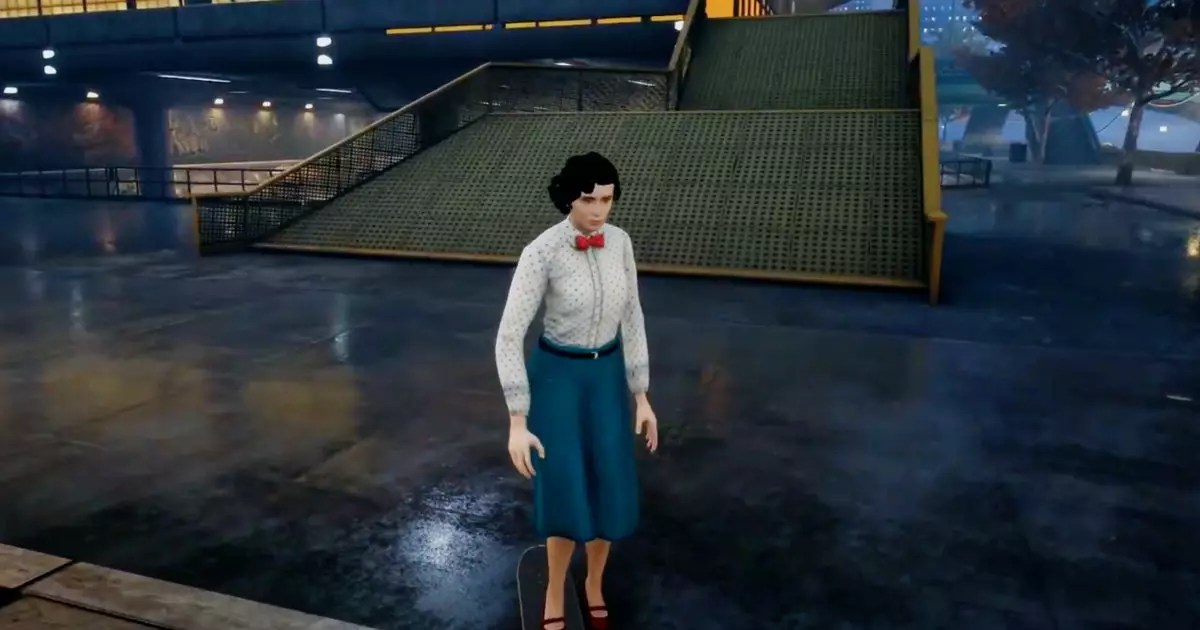In the realm of modern gaming, the boundary between developer intent and player imagination is becoming increasingly blurred. The recent launch of Tony Hawk’s Pro Skater 3+4 illustrates this phenomenon vividly. While technically a nostalgic re-release, the game’s vibrant modding community is transforming it into a canvas of limitless creative expression. This active engagement underscores a fundamental truth: players are not mere consumers but co-creators in the gaming experience. They breathe new life into familiar worlds, positioning themselves not just as passive recipients but as active architects of content. Modding becomes an act of rebellion against static narratives, empowering enthusiasts to challenge and reshape game environments according to their unique visions.
The variety of character swaps available, from cartoon icons like Snow White to gritty celebrities like Tony Soprano, exemplifies how modders recontextualize familiar characters into new, often humorous scenarios. This cultural mash-up serves as both entertainment and social commentary, highlighting the cultural elasticity inherent in virtual worlds. The creative rewriting of character backstories—such as Mary Poppins turning to skateboarding amidst personal tragedy—goes beyond mere cosmetic changes. It reflects a desire to infuse games with depth, humor, and a personal touch that resonates with the community’s collective imagination.
The Significance of Nostalgia and Personalization
In an era where gaming nostalgia has become a significant driver of engagement, mods serve as a bridge between past and present. The reliving of childhood memories through remastered classics is amplified when players are given tools to personalize their experience. The addition of characters from different franchises or eras—while seemingly frivolous—speaks to a deeper yearning for a tailored gameplay experience. These modifications personalize otherwise generic environments, creating an intimate connection between the player and the virtual universe.
Mary Poppins, a character traditionally associated with whimsy and order, taking to a skateboard fits neatly within this paradigm. It subverts expectations and ignites a sense of joy and absurdity that modern gaming often lacks. Such mods exemplify how nostalgia and humor can serve as powerful emotional anchors. They transform the gaming experience from a passive activity into an interactive, imaginative playground where reality is bent to the whims of the community.
Furthermore, these modifications underscore the importance of accessibility and customization. The availability of tools like quick startups, free-roam cameras, and character swaps democratizes content creation. This decentralization of content production fosters a more inclusive environment where anyone can contribute their creativity, regardless of formal development experience. Consequently, the gaming landscape becomes more diverse and vibrant, reflecting the unique viewpoints of a global community.
Challenges in Balancing Creativity and Content Integrity
Despite the undeniable appeal of these creative endeavors, they are not without their pitfalls. The proliferation of mods raises questions about intellectual property, game stability, and the authenticity of the original experience. When the community becomes overly fixated on recreating or remixing content, there’s a risk of diluting the core identity of the game. Excessive or poorly implemented mods can introduce bugs, compatibility issues, or even spoil the intended narrative, disrupting the harmony that developers originally aimed to establish.
Moreover, there is an ongoing debate about whether these mods enhance or detract from the gaming experience. While many see them as a form of artistic expression, others consider them distractions that undermine the integrity of the original creation. Striking a balance between free creativity and respect for original content remains a tightrope walk for developers and modders alike. The community’s enthusiasm must be managed with a sense of responsibility to preserve the gaming experience’s essence while embracing innovation.
In Reflection
Ultimately, the meteoric rise of creative mods in games like Tony Hawk’s Pro Skater exemplifies a broader cultural shift. It underscores a movement toward communal artistic collaboration, where players take ownership of their gaming worlds. As this trend accelerates, it is vital for developers to support and regulate such activities, fostering environments where creativity flourishes without compromising the game’s core identity. Moderation and open dialogue are key—allowing the community to thrive as co-authors of their digital playgrounds, transforming passive enjoyment into active participation and shared innovation.


Leave a Reply